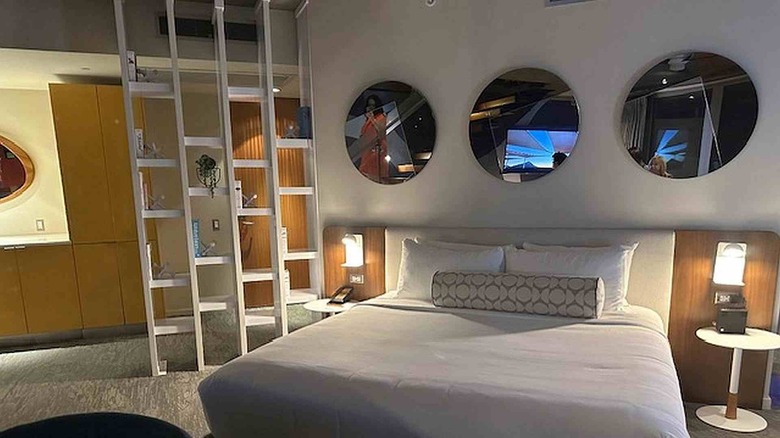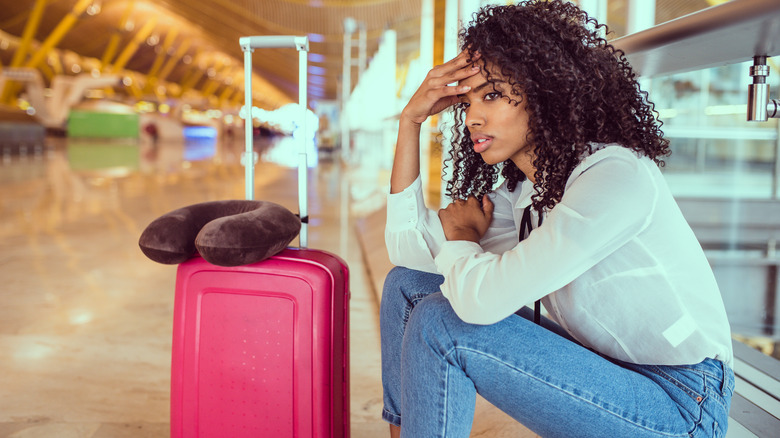NISHEL Travel Toiletry Bag for women, Portable Hanging Organizer for Full-Sized Shampoo, Conditioner, Brushes Set, Makeup Accessories, Large Size, Pink
$21.99 (as of December 20, 2024 21:41 GMT +00:00 - More infoProduct prices and availability are accurate as of the date/time indicated and are subject to change. Any price and availability information displayed on [relevant Amazon Site(s), as applicable] at the time of purchase will apply to the purchase of this product.)Imagine you’re sitting on a flight, glancing around the cabin and observing your fellow passengers. You notice someone with strips of tape on their nose and can’t help but wonder why. Well, it turns out that this unusual beauty ritual is actually a necessity for those who have recently undergone nasal surgery. The tape helps minimize swelling during air travel, which can be caused by changes in cabin pressure. In a viral TikTok video, a user named @reganellisx demonstrated how to tape your nose for a flight, sparking curiosity and confusion among viewers. But don’t be alarmed if you’ve never seen this before; taping is typically required for a few months after the surgery, especially during the first stages of recovery. So next time you see someone with tape on their nose during a flight, you’ll know the unexpected reason behind it.
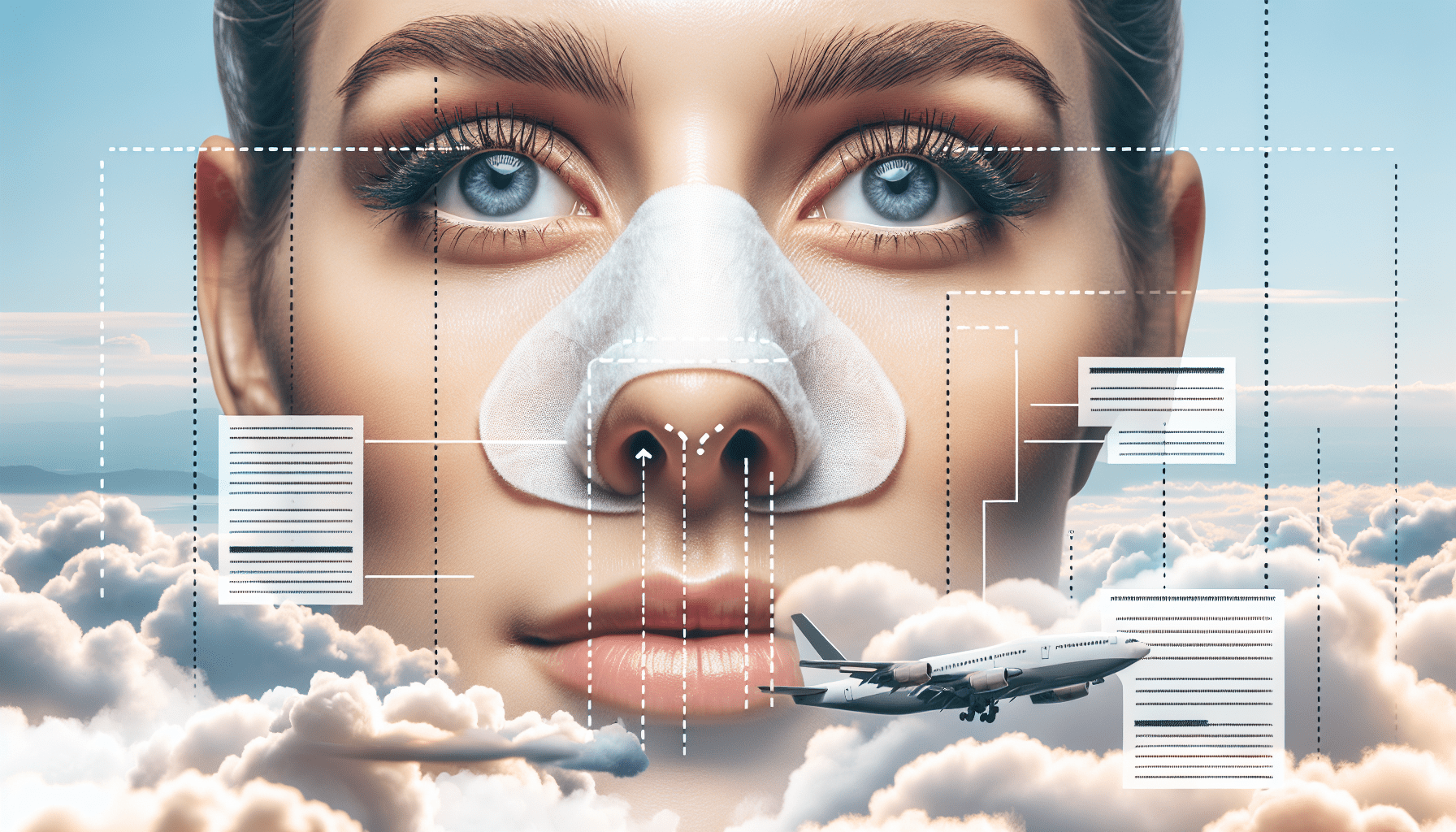
Shop These Accessories for a Comfortable Trip
In-flight beauty rituals
For some travelers, a flight isn’t just a means of transportation; it’s an opportunity to indulge in a few beauty rituals. From reapplying moisturizer to lathering on sunblock, passengers strive to keep their skin glowing and protected during the flight. However, there’s one beauty ritual that might catch your eye – taping the nose. While it may seem unusual, this practice has gained popularity among individuals who have recently undergone rhinoplasty or other nasal surgeries. If you’ve had facial surgery, you might want to consider incorporating nose-taping into your in-flight beauty routine as well.
Taping noses during flights
The concept of taping the nose during flights gained significant attention when a TikTok video went viral. In the video, a user named @reganellisx is seen applying strips of tape to her nose while sitting in an airplane seat. The caption explains that nose-taping is necessary for those who have had a nose job. The clip sparked curiosity among viewers, with many questioning the purpose of nose tape and whether it was essential.
Shop These Accessories for a Comfortable Trip
Purpose of nose tape
Contrary to what some may think, nose tape serves an important function for individuals who have undergone nasal surgery. The tape helps minimize nose swelling during air travel, which can be particularly problematic due to changes in cabin pressure. When a person flies, the cabin pressure fluctuates, leading to swelling and “leaky” blood vessels in the nose. By applying tape, the tension helps control the swelling until the passenger reaches their destination.
Effect of cabin pressure on swelling
To understand why nose tape is necessary, it’s important to grasp the effect of cabin pressure on swelling. According to medical experts, cabin pressure changes can have a profound impact on the body’s lymphatics, which help maintain normal fluid levels and drainage. The lymphatics operate at a lower pressure, so the fluctuation in pressure during a flight can significantly affect the swelling in the nose. By using tape, individuals can proactively manage this swelling and ensure a more comfortable flight experience.

Duration of nose tape usage
If you’ve had surgery on your nose and are considering taping during flights, it’s important to understand the recommended duration. Nose tape is typically required for a few months after the surgery. Nasal swelling can continue for up to a year following the operation, but the initial few months are crucial for taping. During this period, the tape helps control and minimize swelling, allowing the nose to heal properly.
When taping is required
Although taping the nose can be beneficial, it’s important to note that it might not be necessary for everyone who has had nasal surgery. The decision to tape depends on various factors, including the extent of the surgery and the individual’s recovery progress. It’s always best to consult with your doctor to determine if taping is recommended based on your specific circumstances.
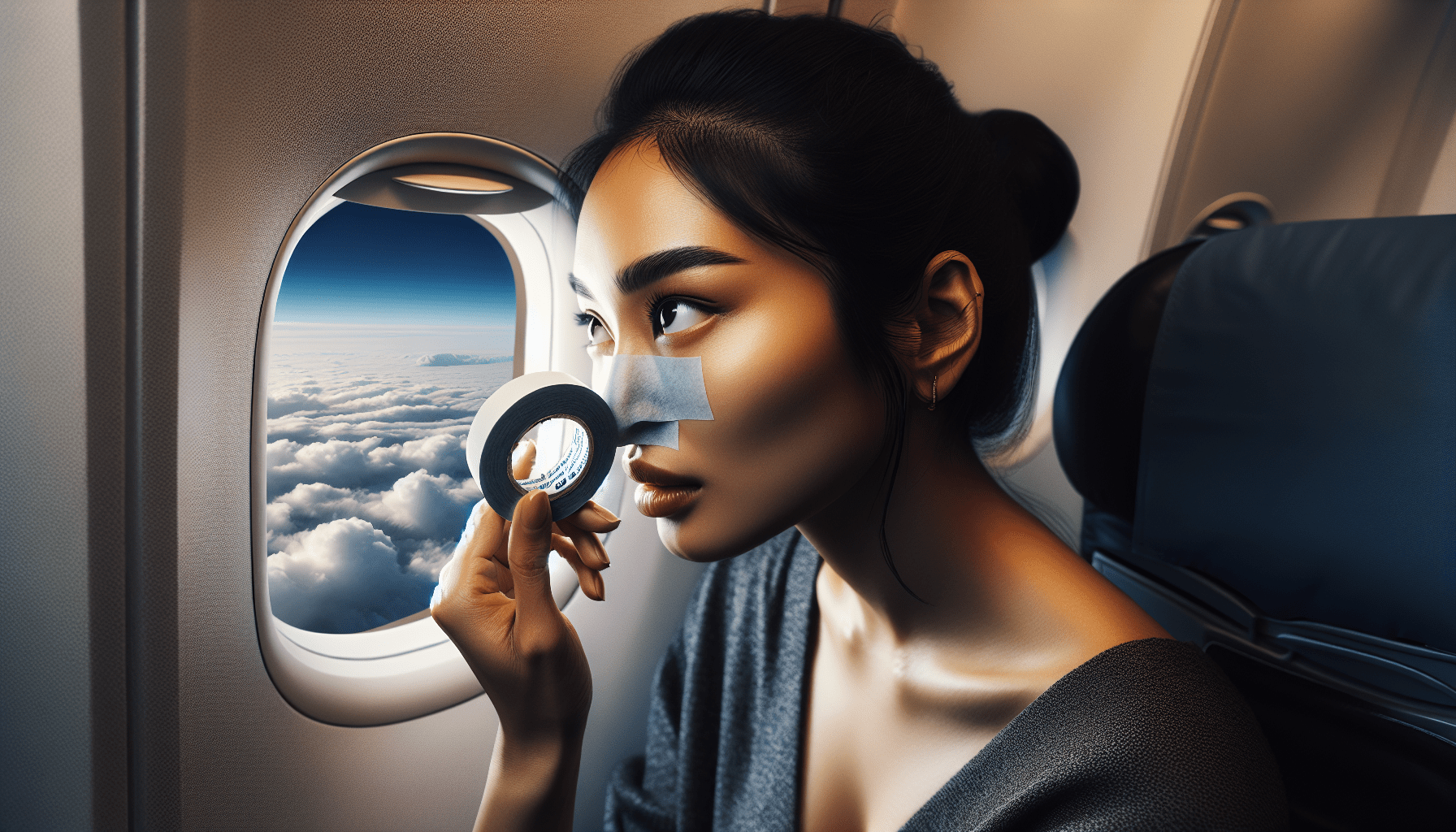
Precautions after nose surgery
Taping the nose is just one precaution that individuals should consider after undergoing nasal surgery. It’s generally a good idea to avoid air travel immediately following the procedure. Flying soon after surgery can lead to complications such as increased swelling, pain, discomfort, and even severe bleeding. Additionally, flying can interrupt the natural healing process, similar to how it’s advised to avoid flying after certain dental procedures. If you must fly in the days following a nasal operation, it is crucial to consult with your doctor first to rule out any potential risks.
Avoiding air travel after surgery
While it might be tempting to travel soon after surgery, it’s generally recommended to avoid air travel for at least two weeks following a surgical procedure. This timeframe allows for proper healing and reduces the risk of complications. Swelling and discomfort are common during the early stages of recovery, and flying can exacerbate these symptoms. By giving your body enough time to heal before taking to the skies, you can ensure a smoother and safer recovery process.
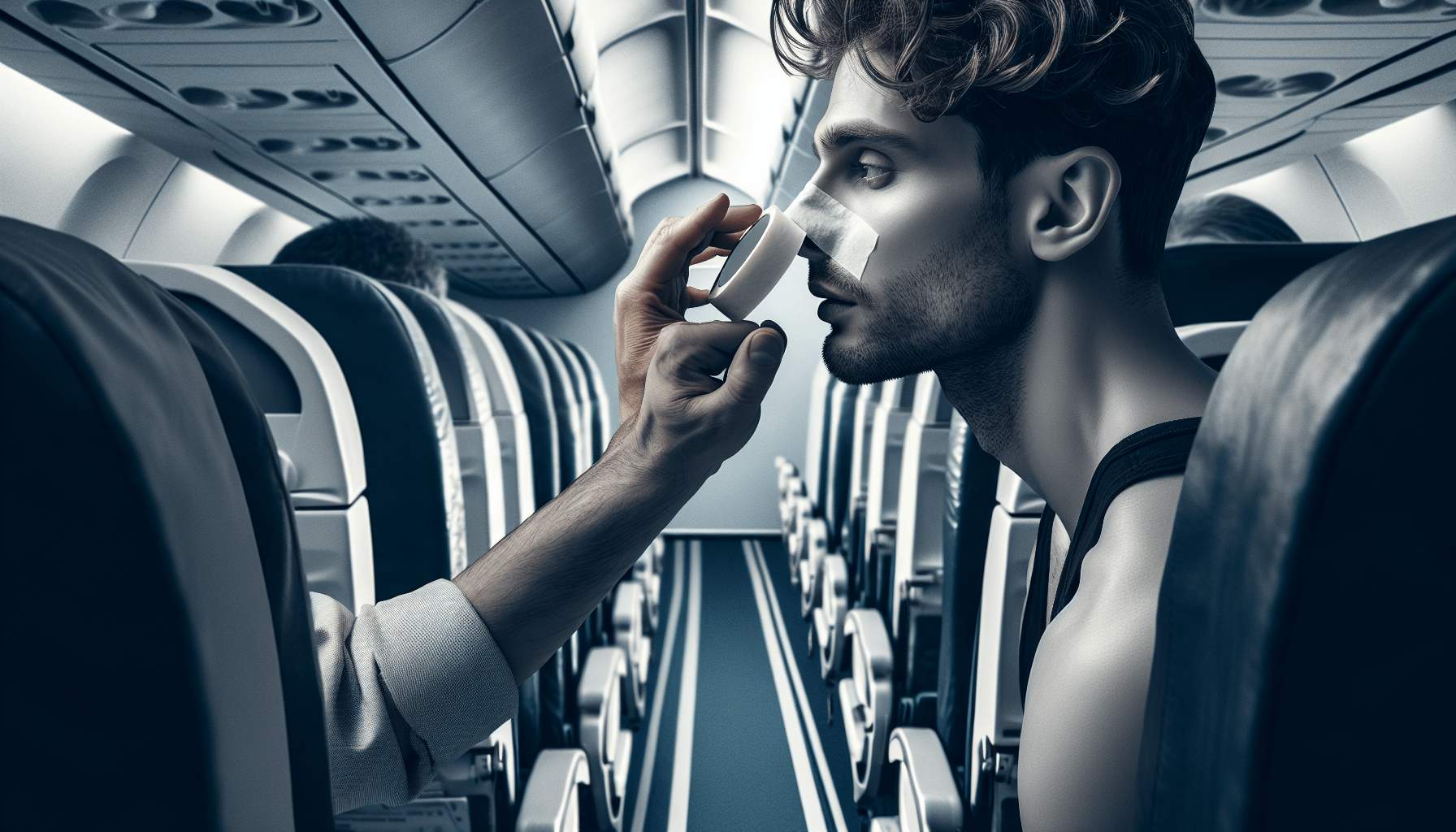
Potential risks of flying after surgery
Flying too soon after nasal surgery can pose several risks. The change in cabin pressure can cause increased swelling, discomfort, and potential damage to the healing tissues. Additionally, the dry air in the airplane cabin can lead to dryness, which can further exacerbate any post-surgical discomfort. It’s crucial to prioritize your health and recovery by allowing your body enough time to heal before exposing it to the stressors of air travel.
Consulting with a doctor before flying
Before embarking on a flight after nasal surgery, it’s essential to consult with your doctor. They will be able to assess your specific situation and provide personalized advice and recommendations. Your doctor may suggest additional precautions, such as taping your nose and using a decongestant before taking off. By discussing your travel plans with your doctor, you can ensure that you’re taking the necessary steps to have a safe and comfortable flight.
Tips for flying after surgery
If you’ve received the green light from your doctor to fly after nasal surgery, there are a few tips you can follow to make the experience more comfortable. First, consider booking a seat with extra legroom to allow for better circulation and reduce any potential discomfort. Stay hydrated by drinking plenty of water throughout the flight to combat the dry cabin air. Additionally, avoid touching or rubbing your nose excessively, as this can irritate the healing tissues. By following these tips, you can help ensure a smoother journey during your post-operative recovery.
Ensuring a safe and comfortable flight
In conclusion, taping the nose during flights has gained popularity among individuals who have had nasal surgery. The purpose of nose tape is to minimize swelling caused by changes in cabin pressure. While nose tape is not required indefinitely, it is recommended for a few months following the surgery. It’s important to consult with your doctor before flying after surgery to determine if taping is necessary for your specific case. By prioritizing your health, following medical advice, and taking necessary precautions, you can ensure a safe and comfortable flight experience during your recovery period.
Shop These Accessories for a Comfortable Trip




